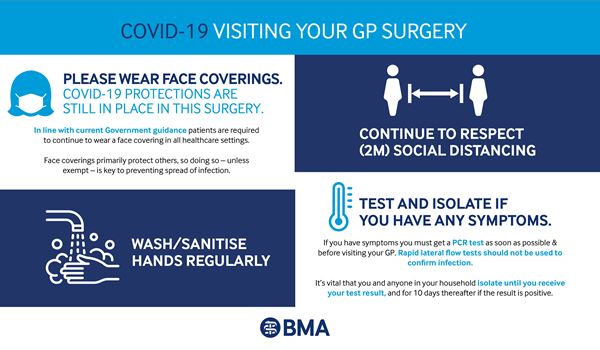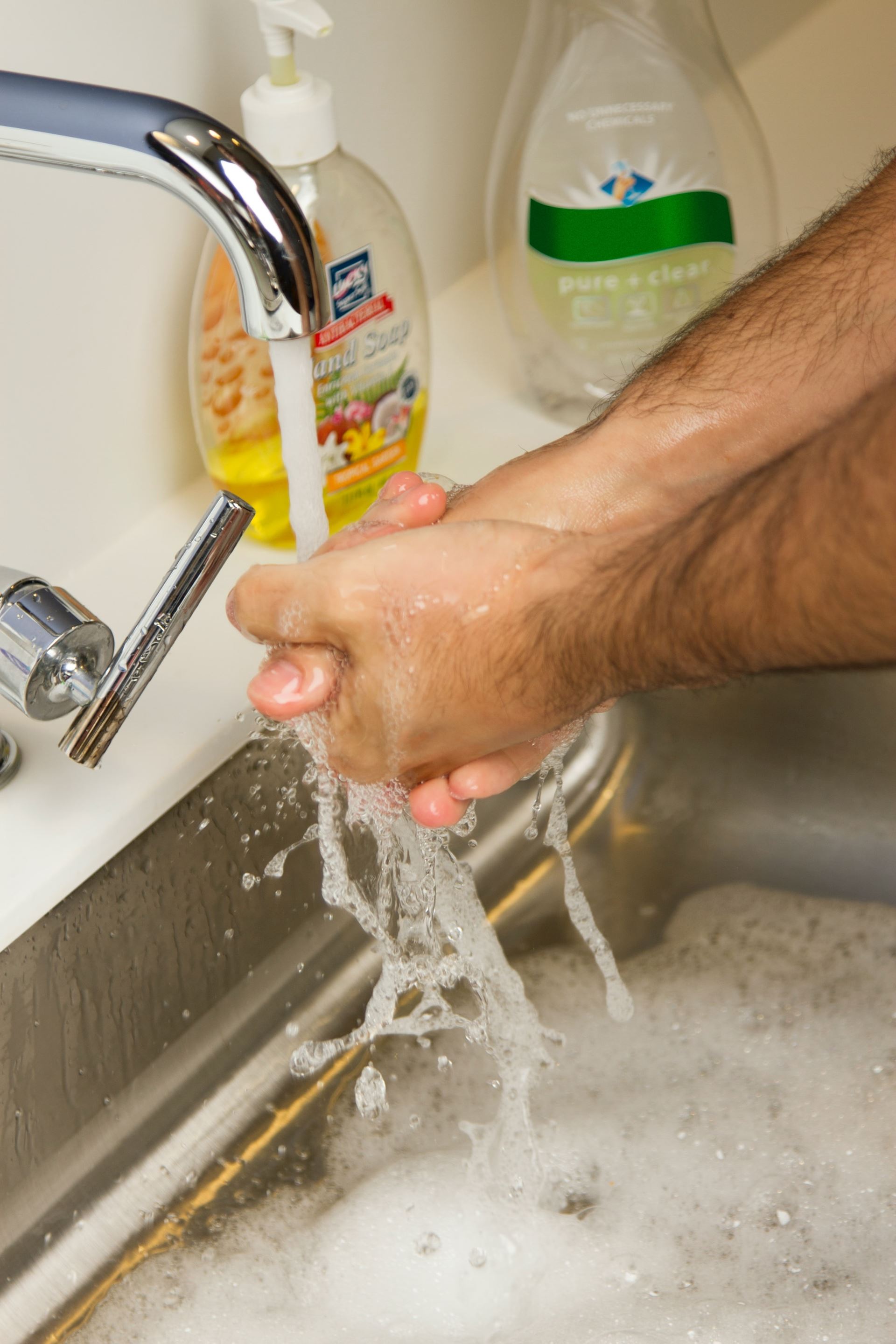Coronavirus (COVID-19)

Latest NHS Information on COVID-19
Restricted Entry to Watling Vale Medical Centre
To safeguard our patients and staff safe we are restricting entry to Watling Vale Medical Centre.
To avoid closure please remember, if you have symptoms of Coronavirus (new persistent cough, fever above 37.8 Celsius and a loss or change to your sense of smell or taste) please DO NOT visit the Health Centre unless you have been advised to do so by one of the doctors.
Face Covering
In line with the government recommendations you will be required to wear face coverings when attending any appointment at Watling Vale Medical Centre.
Staff will continue to wear hospital masks and other PPE where necessary.
For more information on face mask/covering or if you cannot wear a face mask because of a disability or health problem please follow the link below.
Useful Links
COVID-19
https://www.nhs.uk/conditions/coronavirus-covid-19/
Supporting your recovery after COVID-19
https://www.yourcovidrecovery.nhs.uk/
Social Distancing
https://www.nhs.uk/conditions/coronavirus-covid-19/social-distancing/
Symptoms
https://www.nhs.uk/conditions/coronavirus-covid-19/symptoms/
Isolation and Treatment
https://www.nhs.uk/conditions/coronavirus-covid-19/self-isolation-and-treatment/
People at Higher Risk
https://www.nhs.uk/conditions/coronavirus-covid-19/people-at-higher-risk/
Testing and Tracing
https://www.nhs.uk/conditions/coronavirus-covid-19/testing-and-tracing/
Advice for Patients
What to do if you think you might have coronavirus
If you think you might have coronavirus or you've been in close contact with someone who has it:
- Return home
- Stay at home and avoid close contact with other people for 7 days
- do not go to a GP surgery, pharmacy or hospital
- use the NHS 111 online coronavirus service to find out what to do next
The 111 coronavirus service will tell you if you need to continue to stay at home (self-isolate) or if you need medical help.
Please note Travel history is now irrelevant
Symptoms
- Continuous cough and/or
- Fever over 37.8 and/or
- Loss of taste or sense of smell
Sick Notes and Certifying Absences
Requests for certification of absence from the workplace may fall into five categories:
- Personally affected so isolating for seven days
- Personally affected and remaining unwell for over seven days
- Household contact affected so isolating for fourteen days as per government advice
- At risk group so following government advice
- Those in full time education.
- Personally affected so isolating for seven days - Patients can and should self-certify for the first seven days as normal if you are unfit to work. You do not need to contact your GP.
- Personally affected and remaining unwell for over seven days - If you remain unwell and unfit to work after seven days the current advice is to visit 111.nhs.uk where there is an online self-assessment tool; you may be invited to call 111 and be given further advice and a MED3 certificate emailed to you. You do not need to contact your GP.
- Household contact affected so isolating for fourteen days as per government advice (Stay at home: guidance for households with possible or confirmed coronavirus (COVID-19) infection)
- At risk group so following government advice - GPs cannot and are not the gatekeeper of the statutory sick pay system. Employers are responsible for putting in place arrangements for home/remote working where this is possible. Where it is not, the employee may self-certify and return to work following the relevant absence which their employer may authorise as per government advice. Where they do become unwell during or after this time, point 1 and 2 applies. You do not need to contact your GP.
- Those in full time education - there is no NHS requirement to issue certification to schools or colleges to confirm absence. These organisations must work with parents and students to ensure that any absence is appropriately recorded, obviating the need for a ‘doctor’s note’. You do not need to contact your GP.

How to Avoid Catching or Spreading Coronavirus
- wash your hands with soap and water often – do this for at least 20 seconds
- always wash your hands when you get home or into work
- use hand sanitiser gel if soap and water are not available
- cover your mouth and nose with a tissue or your sleeve (not your hands) when you cough or sneeze
- put used tissues in the bin straight away and wash your hands afterwards
- avoid close contact with people who are unwell
- wear a face mask/face covering when travelling on public transport, when entering busy places where social distancing cannot be maintained and when visiting a health care setting
- do not touch your eyes, nose or mouth if your hands are not clean
Advice for Vulnerable Patients
Some patients received a letter from the Government because they were defined on medical grounds as extremely vulnerable if they are exposed to COVID-19. This group of patients are known as Shielded Patients. These patients were advised to isolate for 12 weeks.
Help and Support
Bereavement
Please follow the links below for special advice in the event of a bereavement during the COVID-19 pandemic.
Financial support
Dementia Support